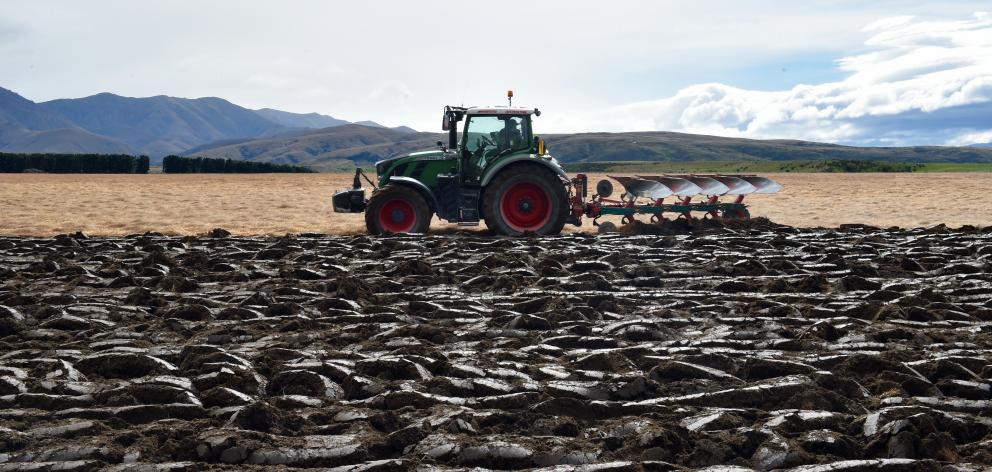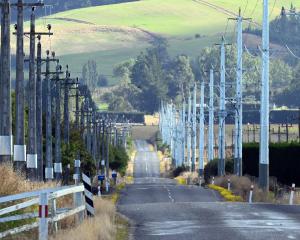
A cursory glance beyond the town boundaries will likely reveal agrarian folk going about their business while exhibiting a rather curious or wry smile as they learn that with a stroke or two of a pen, they suddenly have become (officially) an essential industry.
A wry smile is one made by a deliberate distortion of the facial muscles to express a look of irony. For rural folk, the growing of food and fibre — and for some, turning the ORC’s water into wine without divine assistance — is a daily event.
The ORC’s probation officer should take particular note of the economic and social imperatives/ weighting that rural New Zealand carries.
Those with three score and ten years behind us will recall numerous predictions of the dangers of having reliance on rural or primary production as the main source of wealth generator for the Shaky Isles. A deafening silence has now broken out as to the importance of rural New Zealand to our economic wellbeing.
Most primary producers refrain from the temptation to utter the four most beautiful words in the common language — I told you so.
If an informal apology was ever issued to former Prime Ministers John Key and Bill English from all those who would have them spend all financial reserves years ago, they would notice both of these gentlemen would likely just exhibit a wry smile and say nothing as an act of charity.
The sudden change of industry status of those who engage in the disparate business of primary industries appears to have elevated sinners to saints, pillages and plunders to the quintessential industry which is right now holding the country together. We all now know this to be true as the Prime Minister has (rightly but belatedly) deemed it to be so.
The importance of locally-produced food is suddenly taking pride of place in the economy. We can all breathe a little easier as a result. A Royal Gala or Ambrosia apple being available is as much — if not more — use to humanity these days as an inanimate object made from rare earths and creatively called "a device".
In the scheme of things, this transformation back to reality is no bad thing, as a sense of balance and realism is restored as to what is really important — but for how long? Tourism and retail will come again in their importance to our economy.
Surely we now must use this "down time" to reassess how upwards of 5 million tourists can be casually invited to New Zealand, along with all manner of the undetected human-hosted organisms they bring with them. Questions as to whether New Zealand should trade with countries who allow their "wet" livestock markets to remain as fertile breeding grounds for virus incubation and spread should be under real consideration. The world-renowned virology expert Prof Robert Webster — originally from Balclutha and now from Tennessee — lamented that his pandemic health warnings of 15 years ago went unheeded.
During these difficult times for us all, the use of humour helps us all get through the days ahead. Also, the great altruism of individuals and companies alike helps base us all in this new welcome reality. News that the Cardrona Whisky company near Wanaka is turning perfectly good alcohol into hand sanitiser to great effect in combating the pandemic is but one example. One presumes that if the hand lotion is good for your external health, the fully refined and bottled product taken internally will produce an even better result.
Some people of course believe that all our food should only be produced naturally; but the troubling bit with that notion is that most of us one day will die from natural causes, so a bit of help from science can be no bad thing.
We all hit the jackpot by living in this country, with a new realisation that the tyranny of distance is now no bad thing. In times such as these, we need to seize this unique opportunity to think about how we can structure our economy so as to withstand another bio-shock.
We can continue to use our abundant natural capital such as water, our people, our climate, indeed our mineral resources, to benefit us all. The current crisis will pass. The real question for us all is — what have we learned from the increasing number of health risks, and do we have the leaders who will implement the tough calls to minimise our risk?
- Gerrard Eckhoff is a retired Central Otago farmer and former Otago regional councillor and Act MP.
Comments
A few years ago, a friend of mine was fined $200 for mistakenly bringing a banana in his luggage into New Zealand.
Biosecurity were right to fine him. The health and safety of our crops is important.
However, I remember thinking at the time how we had no biosecurity restrictions for people. We cared more about bananas than human beings!
Up until today (March 9) we've had no compulsory quarantine at our borders. It was inevitable that something like coronavirus would happen.
What worries me most is our politicians will be so keen to get back to business as usual that they will fail to learn from the lessons of coronavirus, lining us up for a worse pandemic a few years from now.











